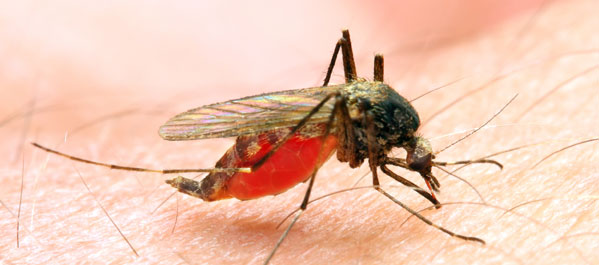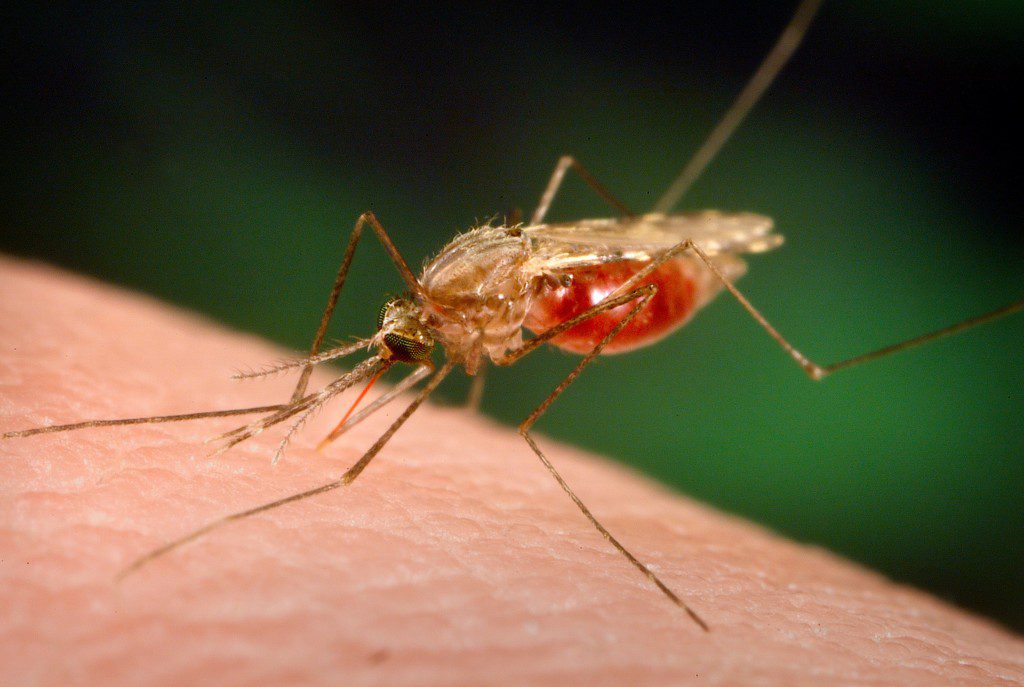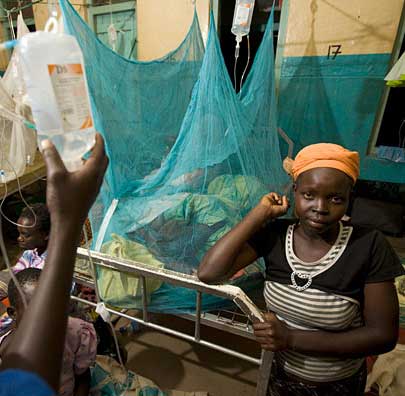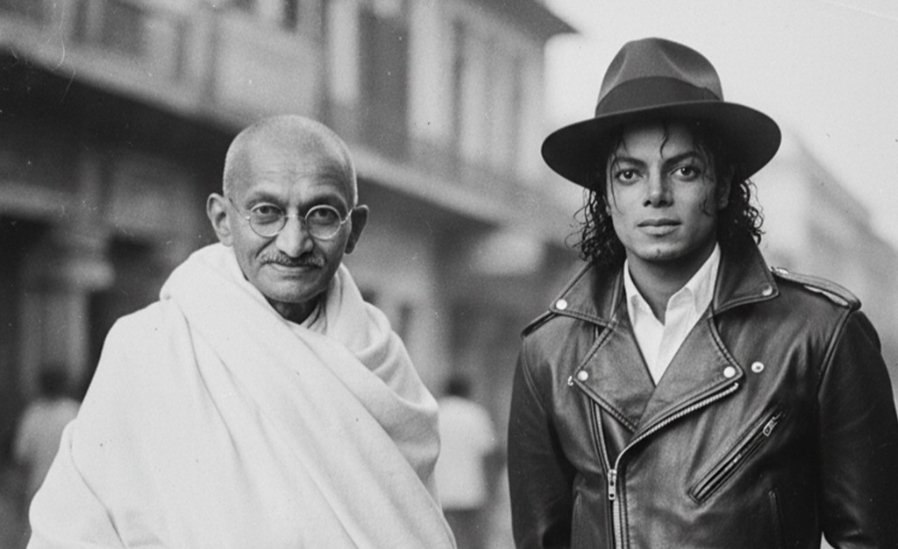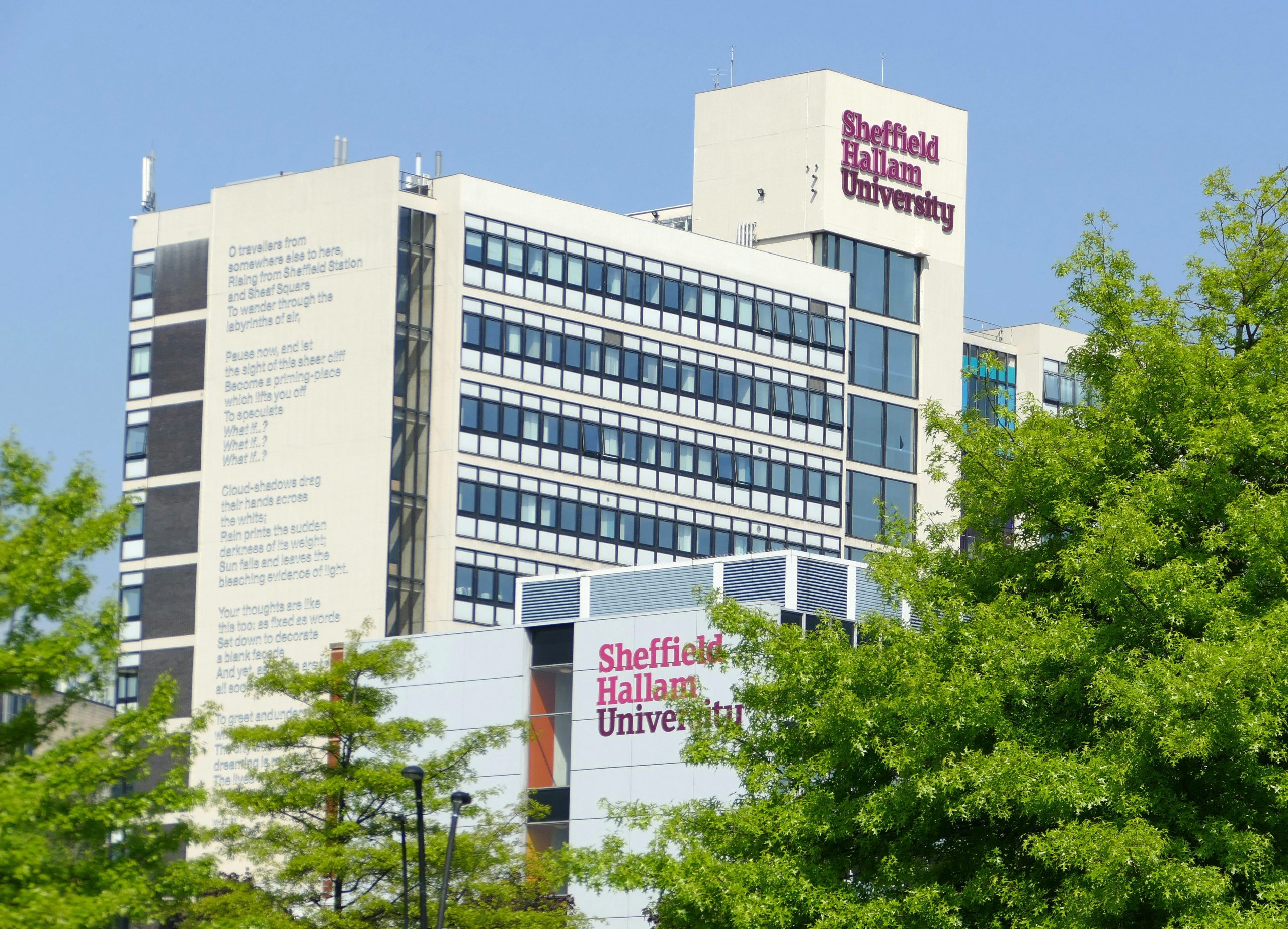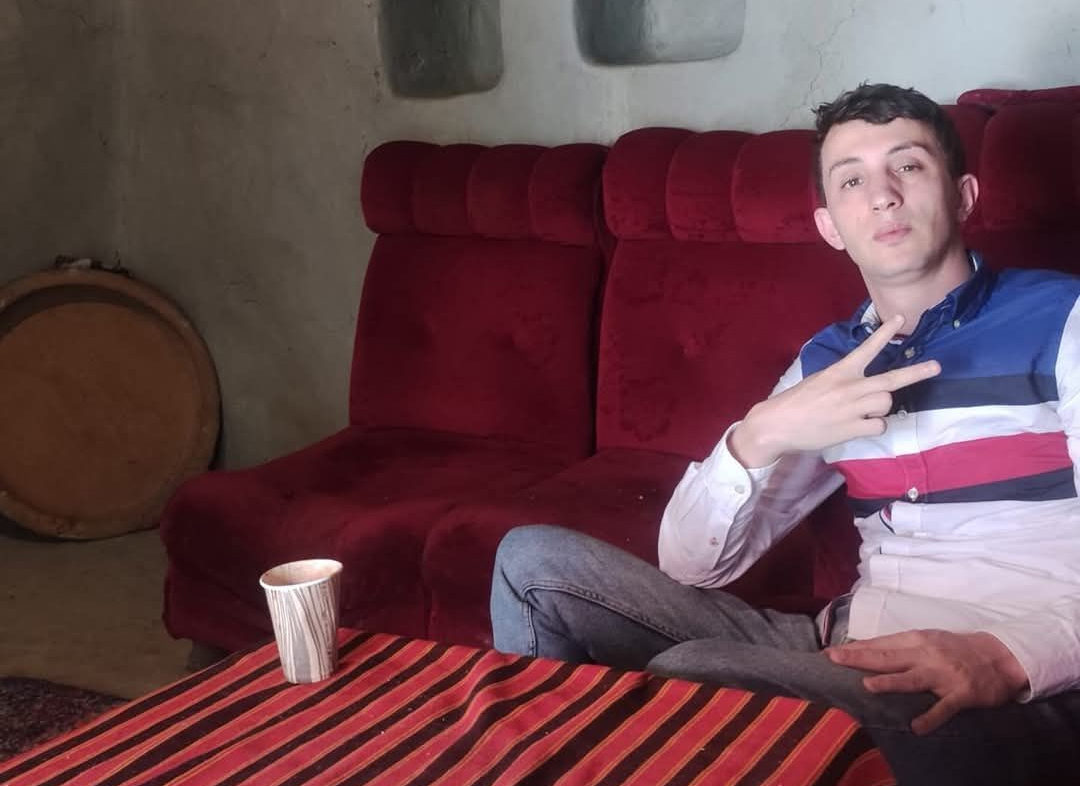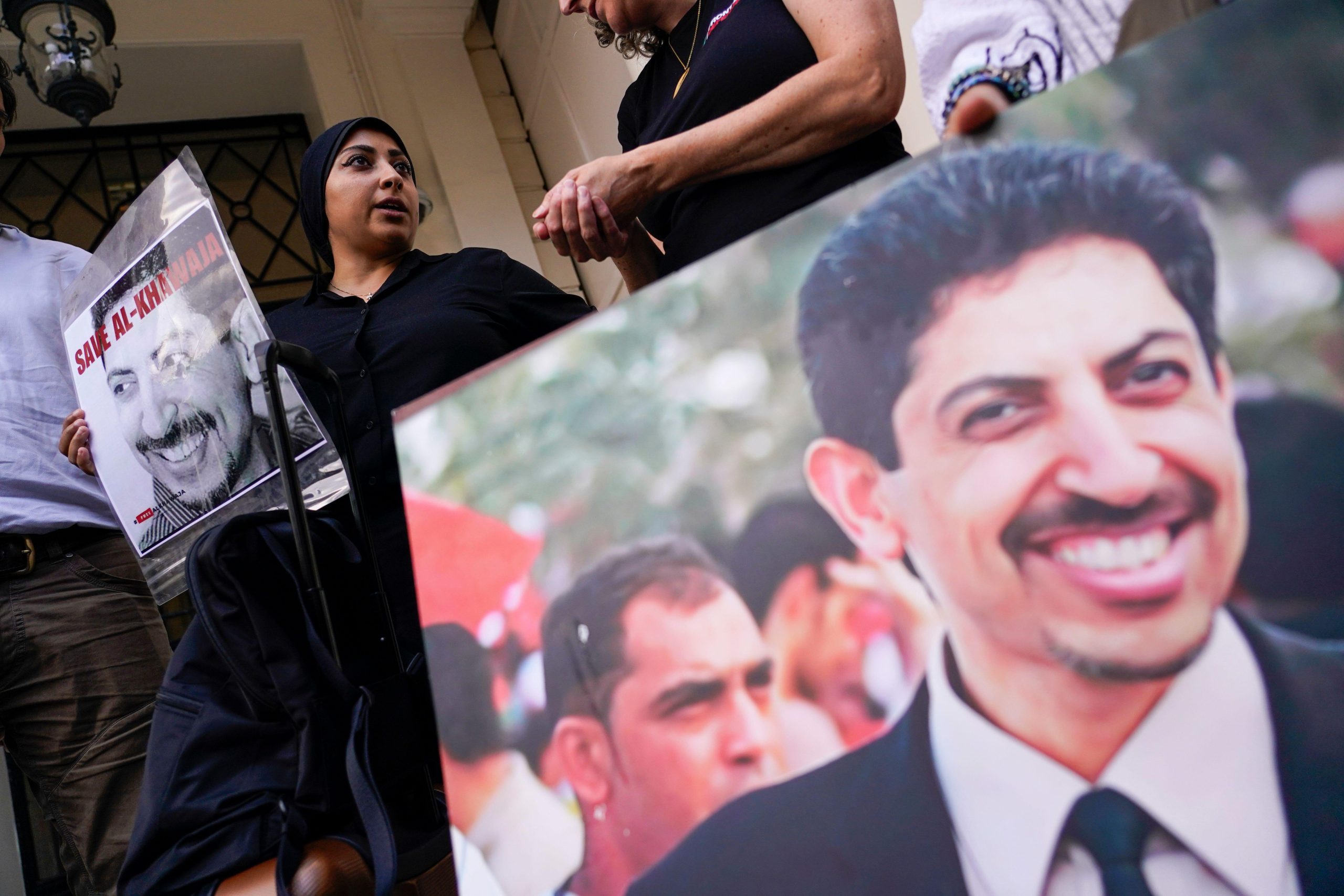In many parts of the world, malaria continues to kill millions — yet experts are still denied access to vital research. Bart Knols reports
For most of us, it’s entirely logical that medical practitioners should be familiar with the latest scientific knowledge and evidence-based practices in order to treat ailments. This forms our fundamental basis of trust in medical professionals. If your doctor suggests a CT scan or drug X, you follow that advice on the basis of trust. So how would you feel if your doctor confesses that he lacks the latest scientific information about your condition? That he can prescribe a drug but is not sure if it is the best treatment? Before long you would be consulting someone else. But what if you live in sub-Saharan Africa, where the vast majority of medical personnel, as well as scientists, researchers and medical students, remain badly deprived of the latest medical developments? Not because they lack access to the internet, but simply because they cannot afford to pay for access to information. This is the harsh reality today. Subscription paywalls make access to essential information impossible.
The malaria industry
Malaria kills between 0.7 and 1.2 million people annually, mostly young children and pregnant women in Africa. Today, more than 800 million people live without the fear of malaria in countries where the risk of contracting the disease was once significant. This shows that it can be eliminated, perhaps even globally as happened with smallpox. But in the tropics, where malaria still reigns, nature remains way ahead of our efforts: parasites constantly evolve and develop resistance to curative drugs and mosquitoes do the same, making our meagre armature of insecticidal sprays laughable. And so a malaria industry has ensued, involving an estimated 8,000-10,000 scientists around the world, their research fuelled by millions of dollars from funding bodies and the search for new and creative ways to end this menace. From vaccines to novel drugs, from proteomics to anthropological fieldwork, from genetically-engineered mosquitoes to climate change effects, the malaria research machinery runs overtime, producing nine scientific articles every day. That’s more than 3,000 new pieces of information each year, all in pursuit of solving the giant malaria puzzle.
Why does scientific knowledge take so long to find its way into day-to-day treatment?
One would assume that this volume of scientific insight would be visible in the real world of malaria control — but a closer look reveals a surprising truth. The controversial insecticide DDT continues to be sprayed in many developing countries, though it was banned in the USA and Europe in the 1970s because of environmental and health concerns. Alternatively, millions of African children are covered with mosquito nets, often coated with insecticides, as they sleep. Although these methods have saved countless lives, resistance to both DDT and pyrethroids, the insecticides used for net impregnation, is spreading across Africa at an unprecedented rate. But why, when the global scientific community produces more than 3,000 articles on malaria each year, are these older methods being so heavily relied on? A decade ago, when the three genomes of the malaria players (human, parasite and mosquito) became available, there was huge optimism that a whole new arsenal of tools would emerge. It didn’t. Why is valorisation of new scientific information — the process of making knowledge useful for society at large — so painfully slow, if not absent?
A recent survey of malaria research articles published in 2010-11 showed that 48 per cent were open access and so could be read without payment. But that also means that every second article had restricted access, requiring some form of payment to access. Those working in well-endowed academic institutions in the north don’t even notice this paywall in their day-to-day mining of scholarly material. But for scientists in the south this is crucial. If you can’t afford to pay, you can’t read. Another survey revealed that three-quarters of malaria professionals based in Africa and Asia often can’t read beyond an article’s abstract. Only two per cent never experience access problems. The net result is disparity in knowledge, which is a double whammy for southerners, as they live in countries where malaria kills daily. Taken one step further, this disparity can be seen as a prime reason why so few scientists from developing countries become global players in the public health arena. It is simply too hard for them to work on par with the West and on the forefront of scientific endeavour when always lagging behind in knowledge acquisition and utilisation.
Why does scientific knowledge take so long to find its way into day-to-day treatment?
Publishers argue that the HINARI Access to Research in Health Programme initiative, which they set up jointly with the World Health Organisation, provides free access to content for institutions in developing countries — but this only applies for as long as the GNI per capita remainsbelow US$1,600 a year. That’s tough for South Africa and Gabon, and recently even Bangladesh became too “rich” and its free access threatened. Out of academics surveyed from Africa, South America and Asia, 41, 79, and 92 per cent respectively claimed never to use HINARI or were not even aware of its existence. Dr Peter Murray-Rust, a molecular informatics specialist at the University of Cambridge, claimed that HINARI “is nothing more than the crumbs of charity” and that publishers don’t give access to their content — it’s academics’ content that is given for free. It is certainly true that we scientists have been submissive to the oligopoly of academic publishers, which claims ownership of our work, often through transfer of copyright. By allowing it to be locked up behind paywalls, we have helped academic publishing to become one of the most profitable businesses today.
Because the lack of access to scientific research diminishes the communication of knowledge and creates disparities between those who have access and those who don’t, effective application of new knowledge to ongoing research is hindered, as is much-needed change in policy for better malaria control in the field. And with scientific publishing having become the end point for research rather than the starting point for change in the real world, academics have come to grips with a system where lack of access to work no longer matters. “Publish or perish” still dominates over “publish for impact”.
Can we justify withholding information from those who need it most?
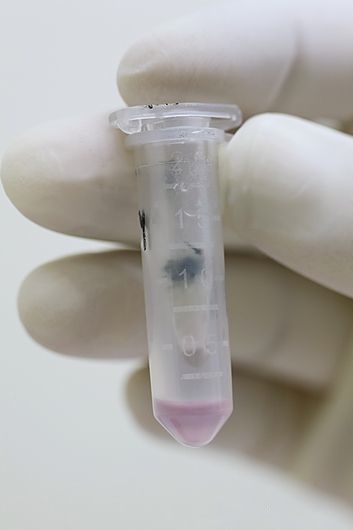 And there’s a further question to be asked: is it morally and ethically acceptable to run a business based on withholding information from those most in need of it? Do we accept that lack of access to scientific information leads to poorer health care and that sub-optimal health care costs lives? In a survey conducted by MalariaWorld, a scientific and social online network for professionals in the field, more than three-quarters of researchers based in the developing world not only considered limited access to be unethical, but also felt that it could potentially cost lives. But the world is finally waking up. Elsevier, one of the world’s leading academic publishers, has received a painful blow since the launch of the global petition thecostofknowledge.com, which encourages scientists to stop submitting manuscripts to Elsevier, stop reviewing manuscripts submitted to their journals and discontinue any editorial work with the publisher. As of July 2012, more than 12,000 scientists around the world had signed the petition.
And there’s a further question to be asked: is it morally and ethically acceptable to run a business based on withholding information from those most in need of it? Do we accept that lack of access to scientific information leads to poorer health care and that sub-optimal health care costs lives? In a survey conducted by MalariaWorld, a scientific and social online network for professionals in the field, more than three-quarters of researchers based in the developing world not only considered limited access to be unethical, but also felt that it could potentially cost lives. But the world is finally waking up. Elsevier, one of the world’s leading academic publishers, has received a painful blow since the launch of the global petition thecostofknowledge.com, which encourages scientists to stop submitting manuscripts to Elsevier, stop reviewing manuscripts submitted to their journals and discontinue any editorial work with the publisher. As of July 2012, more than 12,000 scientists around the world had signed the petition.
This “academic spring” was fuelled by prohibitive journal subscription rates, Elsevier’s lobbying against open access and the cost of accessing material behind the paywall (downloading a single article costs on average US$30). When Harvard University’s Winston Hide published his resignation as associate editor of Elsevier’s journal Genomics in the Guardian in May 2012, it became international news. “No longer can I work for a system that provides solid profits for the publisher while effectively denying colleagues in developing countries access to research findings,” he wrote. The day I read Hide’s letter I handed in my resignation as editorial board member for Elsevier’s journal Acta Tropica.
The open access movement has grown massively. But often with this model, the source of the profit comes from the authors themselves, who pay to have their work published. Once again we are faced with a situation where those in the northern hemisphere can cover publication costs relatively easily, yet developing country scientists are stuck because they cannot afford to pay to publish in open access journals (this cost frequently exceeds US$1,200 per submission). When they do decide to pay, they must use funds that would have otherwise gone towards further research. More than 60 per cent of respondents to the MalariaWorld survey based in developing countries considered open access publication costs to be “high” or “too high”. When they are unable to cover these costs, researchers are destined to return to closed access publishers with the knowledge that their peers may never see their work.
The call for “open access 2.0”
When living in Zambia, Tanzania, and Kenya over a period of 11 years, my wife and I witnessed first hand how the lack of access to scientific information about malaria hinders progress. It inspired us to set up MalariaWorld. What started out as a small-scale effort grew into a free service now reaching more than 7,500 professionals in more than 140 countries. MalariaWorld provides daily updates of newly-released scientific articles, publishes editorials and expert opinions, hosts discussion forums, stimulates debate and encourages networking so research can be practically applied. In 2010, we launched a true open access journal, the MalariaWorld Journal , where academics don’t pay to publish and don’t pay to read. We call this “open access 2.0”. We cover the costs of editorial work and online publishing simply by tapping financial resources from parties other than authors or readers. A grant from the Netherlands Organisation for Scientific Research has enabled us to cover the cost of publishing the next 90 articles.
When it comes to malaria, both restricted and open access publishing have serious negative implications for those working in developing countries, creating disparity and inequitable distribution of knowledge. This negatively affects the quality of healthcare, which is likely to cost lives. It’s not surprising, therefore, that across the developing world, more than 95 per cent of our survey respondents agreed or strongly agreed to the statement: “Scientific articles on malaria should be available for free to all in need of it”. It is high time that academic publishers rethink the ramifications of their business model.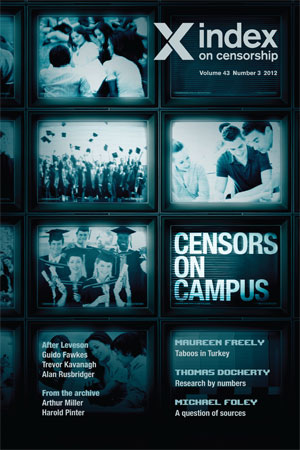
Bart GJ Knols is a malariologist, entrepreneur and author. He has a PhD in medical entomology and is the founder of MalariaWorld
This article appears in Censors on Campus. Click here for subscription options and more

